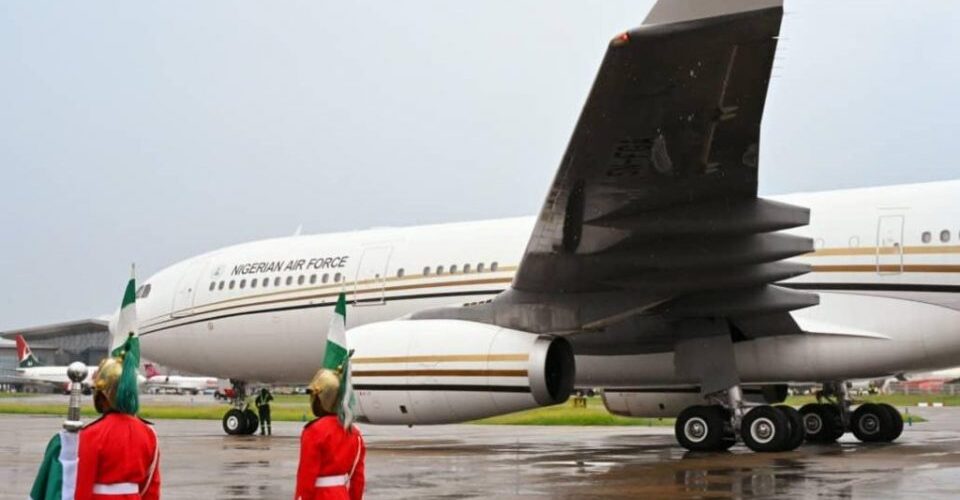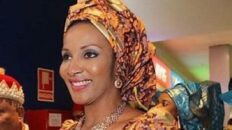Controversial Reactions to President Tinubu’s $100M Jet Purchase: Outrage and Praise
On Monday, the Federal Government of Nigeria, led by President Bola Tinubu, faced severe criticism from political opposition parties regarding the acquisition of a new presidential jet valued at $100 million. This jet, an Airbus A330 business aircraft, was bought without the explicit approval of the National Assembly, prompting accusations of insensitivity and misplaced priorities during a period of economic distress for many Nigerians.
The Peoples Democratic Party (PDP) and the Labour Party (LP) voiced their strong disapproval of the purchase, highlighting the stark contrast between the government’s lavish expenditure and the widespread economic hardships faced by ordinary citizens. PDP Deputy National Publicity Secretary, Ibrahim Abdullahi, and Deputy Youth Leader, Timothy Osadolor, were particularly vocal, criticizing the purchase as a demonstration of the government’s lack of empathy in these challenging times.
In a parallel reaction, Yunusa Tanko, the campaign spokesman for the Labour Party’s presidential candidate, expressed his concern about the government’s focus on luxury rather than addressing the pressing needs of the populace. Tanko’s comments underscored the disparity between the government’s actions and the economic struggles of everyday Nigerians, emphasizing that the decision to prioritize such an extravagant acquisition was both troubling and inappropriate.
President Tinubu’s use of the new Airbus A330 for a working visit to France on Monday highlighted the stark contrasts in public perception of governmental priorities. The aircraft, now registered under the Nigerian Air Force, replaced an older Boeing B737-700 (BBJ), which had served for 19 years. The new jet is designed with advanced features and is intended to modernize the presidential fleet.
The Special Adviser to the President on Information and Strategy, Bayo Onanuga, shared images of the new jet via social media, showcasing its state-of-the-art features. According to Onanuga, this aircraft represents a significant upgrade from the previous model, underscoring the government’s commitment to modernizing its operations. However, this move has been met with backlash from various quarters, who argue that such expenditures are inappropriate given the current economic climate.
Tanko criticized the purchase, labeling it as an example of government excess while millions of Nigerians struggle with poverty. He pointed out that the lack of transparency surrounding the acquisition was concerning and demanded that the government provide a detailed account of how the funds for the $100 million jet were sourced. Tanko’s comments reflect a broader dissatisfaction with what is perceived as government mismanagement and a disconnect from the realities faced by the average Nigerian.
Similarly, PDP Deputy Publicity Secretary Ibrahim Abdullahi condemned the purchase as emblematic of the government’s misplaced priorities. He argued that the acquisition of another aircraft, despite existing presidential jets, is a clear indication of the government’s disregard for the severe economic challenges faced by the population. Abdullahi’s critique was a call for greater accountability and transparency from the government, highlighting the disparity between the opulence of governmental actions and the dire situation of ordinary citizens.
Deputy Youth Leader Timothy Osadolor echoed these sentiments, criticizing the President’s decision as a display of insensitivity. Osadolor questioned the President’s motives, suggesting that a leader with significant experience in governance should have been more attuned to the economic struggles of the people. He called for a reevaluation of the government’s priorities, urging a shift towards addressing the nation’s pressing economic issues rather than indulging in what he viewed as unnecessary luxuries.
The new Airbus A330 took off from Abuja’s Nnamdi Azikiwe International Airport at 4:08 pm, with President Tinubu and key aides aboard. This journey marked the aircraft’s inaugural trip, following its acquisition last month for $100 million. The purchase was made amid ongoing scrutiny over the government’s financial decisions and priorities.
The arrival of the new aircraft had been preceded by a legal dispute involving three presidential jets that were seized by a French court in favor of the Chinese firm Zhongshan Fucheng Industrial Investment Co. Limited. The dispute, which centered on a financial disagreement with the Ogun State Government, was resolved when Zhongshan agreed to release one of the seized jets as a gesture of goodwill, enabling President Tinubu’s planned visit to France.
Zhongshan’s decision to release the aircraft was timed to facilitate President Tinubu’s diplomatic engagements, including his upcoming participation in the Forum on China–Africa Cooperation in Beijing. The acquisition of the new jet was part of the government’s broader strategy to modernize the presidential fleet, despite the criticisms it has attracted.
The new jet, equipped with a bedroom, office space, conference, and dining areas, represents a significant investment in the presidential fleet. Valued at $100 million (approximately ₦150 billion), this aircraft is expected to enhance the President’s travel capabilities. This purchase has been the subject of intense debate, with some former Senate officials and civil society organizations expressing their disapproval.
Former principal officers in the Senate criticized the use of Service Wide Votes for the jet purchase, arguing that such expenditures lack proper oversight and transparency. The Service Wide Votes, a discretionary fund, have been criticized for their opacity and potential for misuse. These concerns reflect broader issues regarding the management and accountability of public funds.
Senate President GodsWill Akpabio responded to criticisms by affirming that the Senate had not officially approved the purchase but would consider such requests if presented by the President. Akpabio’s comments highlighted a perceived readiness to support necessary expenditures, provided they are appropriately requested and justified. This stance underscores the complex interplay between legislative oversight and executive decision-making.
The Presidency had previously defended the jet purchase, arguing that it was necessary to ensure the safety and efficiency of the President’s travel. Presidential spokesperson Bayo Onanuga countered criticisms by emphasizing the importance of secure and reliable transportation for the President. He argued that the acquisition of a new jet was a prudent decision, necessary to avoid potential risks associated with older aircraft.
However, the secrecy surrounding the purchase and the use of Service Wide Votes for such an acquisition has raised concerns among civil society organizations. Debo Adeniran, Chairman of the Centre for Accountability and Open Leadership, criticized the lack of transparency and urged the National Assembly to exercise greater scrutiny over such expenditures. Similarly, Auwal Ibrahim Rafsanjani, Executive Director of the Civil Society Legislative and Advocacy Centre, expressed concerns about the National Assembly’s perceived alignment with the President, questioning its ability to hold the executive accountable.
These criticisms reflect a broader dissatisfaction with the current state of governance in Nigeria, highlighting issues of transparency, accountability, and the management of public resources. The controversy surrounding the presidential jet purchase underscores the need for greater oversight and a reevaluation of governmental priorities, especially in light of the economic challenges faced by many Nigerians.
In summary, the acquisition of the $100 million Airbus A330 by President Tinubu’s administration has sparked significant controversy and criticism from various quarters. Opposition parties, former lawmakers, and civil society organizations have voiced concerns about the government’s priorities and the management of public funds. The debate over the jet purchase highlights broader issues of transparency, accountability, and the disconnect between governmental actions and the realities faced by ordinary Nigerians. As the nation grapples with these challenges, the call for greater oversight and a reassessment of governmental priorities remains a central theme in the ongoing discourse.






Add comment